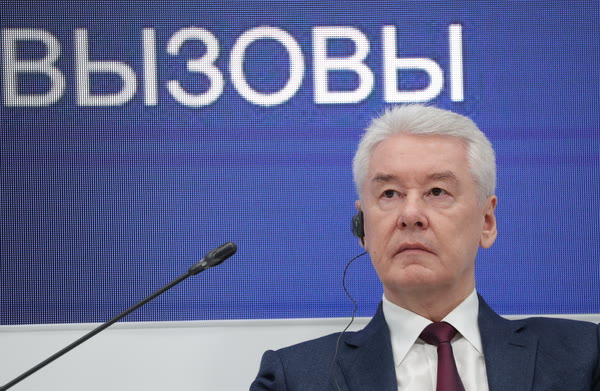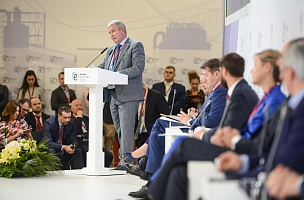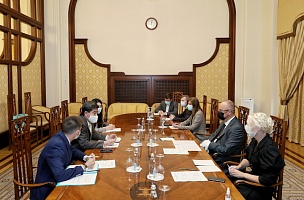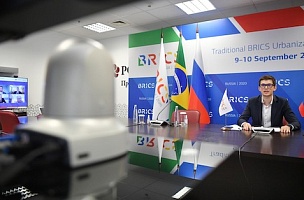KEY CONCLUSIONS
Invest where there are people
“We must treat migration as a natural process. Migration within small settlements here is no less powerful. We need to support economic growth, wherever it is since these are growth points. It’s crucial that our support system gives each region a chance to identify and support these growth points. Let’s be honest: we aren’t able to manage each settlement from Moscow. There are teams of governors for this who understand the needs of people and understand where this growth is,” Russian Minister of Economic Development Maxim Reshetnikov said.
“In the short term and medium term, people here will be living in large agglomerations, small towns, and rural areas, so naturally state policy should above all be based on what people want today, where they want to live today, and what services they want to receive, and trends should be clearly reflected in public policy. That’s why the set of tools will be different for each such territory, and people will decide for themselves where to live,” Russian Presidential Plenipotentiary Envoy to the Urals Federal District Vladimir Yakushev said.
“As far as the usual distribution of investments is concerned, I believe that investments should follow people. People go one direction, and we invest money in the other. This won’t lead to anything good,” Moscow Mayor Sergey Sobyanin said.
“In the future, thanks to the speed of transport, everyone will be able to find themselves wherever they want [...] And we will be able to take advantage of many other opportunities, so I am absolutely sure that this positive experience and persistence will create absolutely different opportunities, not only intra-agglomeration, but also inter-agglomeration,” Russian Railways CEO and Chairman of the Management Board Oleg Belozyorov said.
PROBLEM
It’s crucial for us to create macroeconomic stability and stable playing conditions
“We need to be more careful about what has already been done […] All long-term projects must be brought to fruition. We must clearly understand that the projects we invest in should have a return and that the value added will create tax potential for us to return loans. Macroeconomic stability is not an empty phrase, and this applies to the regions as well. The pie, which is constantly being re-sliced, is not getting any bigger,” Russian Minister of Economic Development Maxim Reshetnikov said.
“We need to know what will happen in five or ten years based on this plan. This is extremely important. Don’t change the rules of the game and don’t distort them […] Quite a lot of powers are being transferred to the regions. This is important, as it gives the city an opportunity to develop. As for rural areas, small towns, or strategic areas, of course, strategic areas should be developed with the help of the state. They are unlikely to come alive on their own. We must deal with the Far East, Siberia, Chukotka, Kaliningrad, Crimea, and Sevastopol. The state should keep a close eye on their development and invest money there,” Moscow Mayor Sergey Sobyanin said.
“Growth in the size agglomerations must be balanced. An important problem is transport. A comfortable environment in agglomerations entails the presence of a transport system that is connected with cities […] A lack of communication and withdrawal into virtual reality is typical for residents of big cities today,” Deputy Chairman of the Cabinet of Ministers of Turkmenistan Serdar Berdimuhamedov said.
“Every ten years, Moscow grows by a million people and the Moscow region by another half a million. The question here is no longer a matter of discussions, but is posed point-blank: what should we do about it? We cannot prohibit this [...] in these times, when a person is free to choose the place where he/she lives, and there are no restrictions. All large cities in Russia are growing rather fast,” Moscow Mayor Sergey Sobyanin said.
“The problem is the conflict between the development of large cities and all the others. There is a risk that all the other territories will become empty […] Another problem is territorial management. It’s not easy. If there’s no proper territorial management system, then there is a risk that megacities will actively develop, and other territories will decline,” Metropole du Grand Paris President Patrick Ollier said.
SOLUTIONS
Developing transport infrastructure provides explosive growth in investment
“Infrastructure should work to create conditions for business and create new business, new taxes, and new jobs. A very vivid example is Moscow [with its Moscow Central Circle and Moscow Central Diameters railway lines]. When we were building the metro with Sergey Sobyanin and investing in this infrastructure, everyone told us it was expensive, but life has shown that wherever transport infrastructure is built, there is an explosion of investments. And it all paid off […] The key task is to attract as much investment as possible through infrastructure, then there will be more money and the quality of life will increase […] While dealing with agglomerations, we by no means disregard small settlements: these are rural areas and small towns. Today, in our policy, we are looking at where, in addition to agglomerations, to also make so-called footholds so that in each region about 15–30 footholds should appear, where the quality of life will be higher. What is quality of life? It’s medicine, education, and culture,” Russian Deputy Prime Minister Marat Khusnullin said.
“It’s no longer the thought process that takes centre stage for us, but how to make this huge concentration of the population useful for the economy. The most important thing is that things are convenient for residents. And that’s where all the projects come from. Projects related to the development of railways and subways, the construction of interchanges, roads, and bypasses, improvements to the health care system and education and, most importantly, the public and the urban environment,” Moscow Mayor Sergey Sobyanin said.
For more information, visit the ROSCONGRESS.ORG Information and Analytical System.






